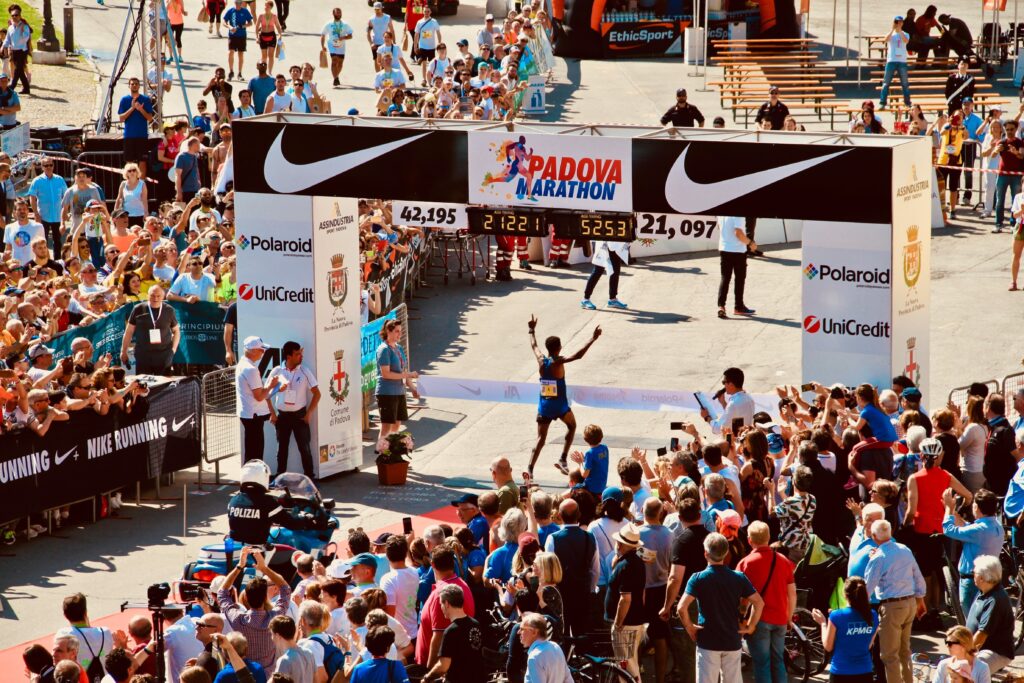Running Tips
How To Run A Marathon World Record–Half-Marathon Splits
In Sunday’s London Marathon, both Eliud Kipchoge and Mary Keitany ran considerably faster than world-record pace for the first half of the distance. In fact, both set records for the fastest first 13.1 miles in a marathon. However, both fell far short of setting new records for 26.2. Indeed, Keitany blew up bigtime, running 10 minutes slower for the second 13.1 miles, and finishing fifth. In their marathon world records, both Dennis Kimetto and Paula Radcliffe ran substantial negative splits. Impressive, but perhaps inefficient as well. When Kipchoge ran 2:03:05 at London ‘16, he covered the first half in 61:24 and the second half in 61:41. Just about perfect, even though he missed the record by 8 seconds.
CONCLUSION: To run a marathon world record, set a target time several seconds faster than the current record.
Run that pace for the first 13.1 miles. Then hope you have enough in the tank to run the same pace, or slightly faster, the second 13.1 miles.
Analysis, Half Marathon Splits in World-Record Marathons, London 2018, And Several Other Marathons
| RUNNER | MARATHON | FIRST HALF | SEC HALF | FINISH |
| Kimetto | WR, Berlin ‘14 | 61:45 | 61:12 | 2:02:57 |
| Kipchoge | London ‘18 | 61:00 * | 63:17 | 2:04:17 |
| Kipchoge | Breaking2 ’17 | 59:57 | 60:28 | 2:00:25 |
| Kipchoge | London ‘16 | 61:24 | 61:41 | 2:03:05 |
| Radcliffe | WR, London ‘03 | 68:02 | 67:23 | 2:15:25 |
| Cheruiyot | London ‘18 | 68:56 | 69:35 | 2:18:31 |
| Keitany | London ‘18 | 67:16 * | 77:11 | 2:24:27 |
* Fastest first half in a major marathon
Recent scientific paper supporting the above conclusion: “Although a negative pace distribution has been proposed as the most efficient option, a pacing strategy characterised by very little speed changes across the whole race may be the way to go in the future.”

